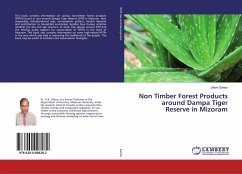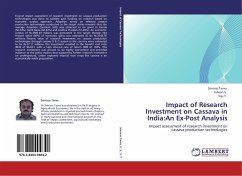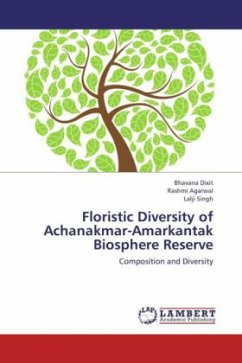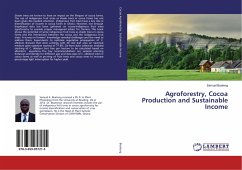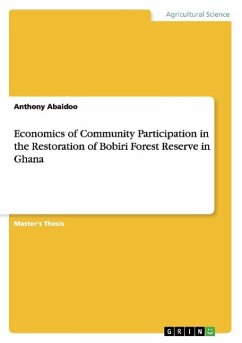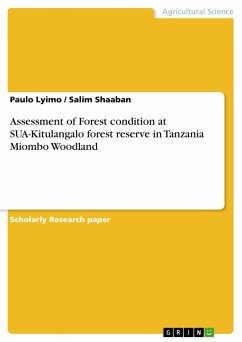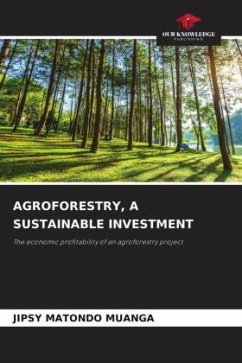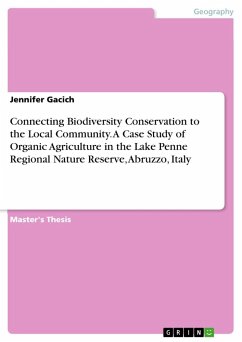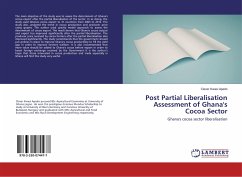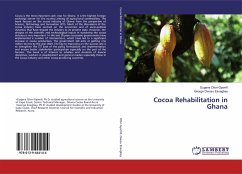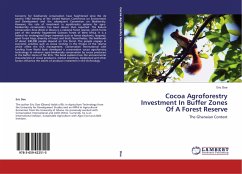
Cocoa Agroforestry Investment In Buffer Zones Of A Forest Reserve
The Ghanaian Context
Versandkostenfrei!
Versandfertig in 6-10 Tagen
23,99 €
inkl. MwSt.

PAYBACK Punkte
12 °P sammeln!
Concerns for biodiversity conservation have heightened since Rio de Janeiro 1992 meeting of the United Nations Conference on Environment and Development and the subsequent Convention on Biodiversity. However, the rate of investment in agroforestry systems for agro-biodiversity conservation has been slower than expected. The Kakum Conservation Area (KCA) in Ghana is a national forest reserve, which forms part of the severely fragmented Guinean Forest of West Africa. It is a habitat for endangered larger mammals such as forest elephants, leopards, giant forest hogs, diversity of insect and birds...
Concerns for biodiversity conservation have heightened since Rio de Janeiro 1992 meeting of the United Nations Conference on Environment and Development and the subsequent Convention on Biodiversity. However, the rate of investment in agroforestry systems for agro-biodiversity conservation has been slower than expected. The Kakum Conservation Area (KCA) in Ghana is a national forest reserve, which forms part of the severely fragmented Guinean Forest of West Africa. It is a habitat for endangered larger mammals such as forest elephants, leopards, giant forest hogs, diversity of insect and birds. Nevertheless, the livelihoods of about 240,000 people depend on this forest. The people engage in economic activities such as cocoa farming in the fringes of the reserve which affect the KCA management. Conservation International with funding from World Bank developed a conservation cocoa agroforestry technology to enhance agro-biodiversity conservation by cocoa producers in the buffer zones of the KCA. This book explains how the socioeconomic characteristics of cocoa producers, market incentives, biophysical and other factors influence the extent of producer investment in the technology.



